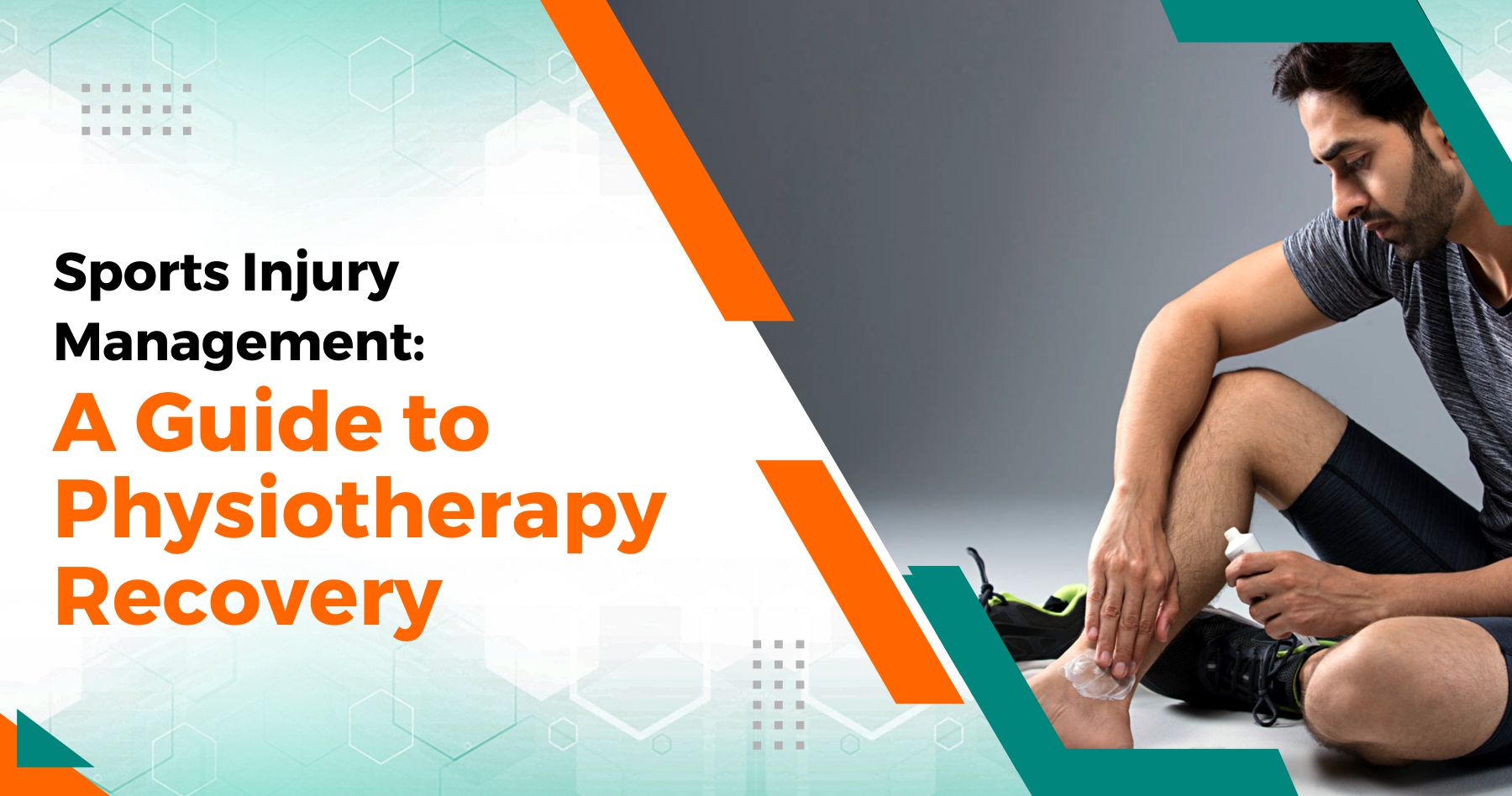Sports Injury Management: A Step by Step Physiotherapy Guide

Understanding Sports Injury Management: A Step-by-Step Guide to Physiotherapy Recovery Plans
In the world of athletics, sports injuries are an unfortunate common occurrence. Injuries can happen whether you're a professional athlete or a weekend warrior, and proper management is essential for a successful recovery. Physiotherapy and rehabilitation are crucial in aiding athletes to regain strength, mobility, and function after an injury. This guide will explore the fundamentals of sports injury management and how physiotherapy can facilitate the recovery journey.
Understanding Sports Injuries
Firslty, Sports injuries range from minor sprains and strains to significant fractures and dislocations. These injuries usually occur due to overuse, incorrect technique, or sudden impact during physical activity. Some common sports injuries are ankle sprains, knee injuries (like ACL tears), muscle strains, and tendonitis.
The Role of Physiotherapy in Recovery
Physiotherapy is a specialized branch of healthcare focused on restoring movement and function to the body. In sports injuries, physiotherapists play a crucial role in developing personalized recovery plans tailored to the athlete's needs. Typically, these plans consist of exercises, manual therapy, and other modalities to decrease pain, promote healing, and restore strength and flexibility.
Components of a Physiotherapy Recovery Plan
Assessment: The first step in developing a recovery plan is a comprehensive assessment of the injury and its impact on the athlete's movement and function. This may involve physical examinations, imaging studies, and discussing symptoms and goals.
Treatment: Based on the assessment findings, the physiotherapist will prescribe a range of treatments to address the athlete's specific needs. This may involve different treatments, such as exercises to enhance strength and flexibility, manual therapy techniques for massage or joint mobilization, and modalities like ice or heat therapy.
Progression: As the athlete's condition improves, the physiotherapy plan will evolve to reflect their changing needs. This may involve adjusting exercises, introducing new techniques, or gradually increasing treatment intensity to support continued progress.
Education: Throughout the recovery process, physiotherapists also play a vital role in educating athletes about their injuries, proper movement mechanics, and strategies for injury prevention. When equipped with knowledge, athletes can take an active role in their recovery and minimize the risk of future injuries.
Benefits of Physiotherapy in Sports Injury Management
Physiotherapy offers numerous benefits for athletes recovering from sports injuries, including:
Pain Relief: Through targeted interventions, physiotherapy can help alleviate pain associated with sports injuries, allowing athletes to engage more comfortably in their recovery.
Improved Mobility: Physiotherapy exercises and techniques promote flexibility and range of motion, enabling athletes to regain movement and function in injured areas.
Faster Recovery: By facilitating the body's natural healing processes, physiotherapy can accelerate the recovery timeline, allowing athletes to return to their sport sooner.
Reduced Risk of Re-Injury: Physiotherapy addresses underlying imbalances and weaknesses contributing to sports injuries, reducing the likelihood of recurrence.
Enhanced Performance: Beyond injury recovery, physiotherapy can optimize athletic performance by improving biomechanics, strength, and endurance.
Final Words:
Finally, physiotherapy is crucial in managing and recovering sports-related injuries. By developing personalized treatment plans focused on restoring movement, function, and strength, physiotherapists help athletes navigate the path to full recovery. Dr. Neerad Sukla, an esteemed physiotherapy specialist in Hisar, leads the team at Sarvesh Health City, recognized as the best physiotherapy hospital in Hisar, offering expert physiotherapy services and consultation to athletes and individuals seeking optimal recovery from sports injuries.
FAQs (Frequently Asked Questions)
Q1: How long does it take to recover from a sports injury with physiotherapy?
Ans: The recovery timeline varies depending on the type and severity of the injury. However, physiotherapy can expedite the process, with some athletes seeing significant improvement within a few weeks.
Q2: Can I continue to exercise while undergoing physiotherapy for a sports injury?
Ans: In many cases, yes. Your physiotherapist will provide guidance on which activities are safe and beneficial during your recovery and any modifications or restrictions to consider.
Q3: Is physiotherapy painful?
Ans: Physiotherapy should not be excessively painful, although discomfort may occur during specific exercises or techniques. Your physiotherapist will work with you to ensure comfort and adjust treatment as needed.
Q4: What should I look for in a physiotherapist for sports injury management?
Ans: Look for a qualified, experienced physiotherapist specialising in sports injury rehabilitation. They should take a personalized approach to treatment and prioritize open communication and collaboration.
Q5: How can I prevent getting injured while playing sports in the future?
Ans: While some injuries are unavoidable, you can take steps to reduce your risk, such as proper warm-up and cool-down routines, using appropriate equipment, maintaining good technique, and incorporating strength and flexibility training into your regimen.

Dr. Neerad Sukla
Physiotherapy
Dr. Neerad Sukla is a dedicated professional in the field of physiotherapy.
2023-11-23 22:34:28
